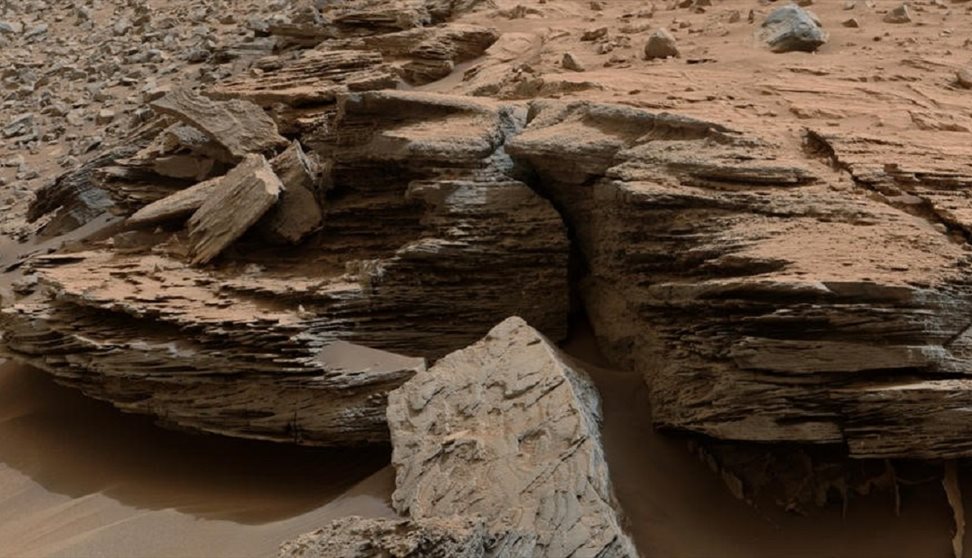Geology of Mars
University of Plymouth
Drake Circus
Plymouth
Devon
PL4 8AA

Opening Times
Sorry, this event has passed
Prices
Free admission
About us
The South West Regional Group of the Geological Society of London and the University of Plymouth are delighted to invite you to this evening seminar on the 'Geology of Mars' by Marcus Matthews. The talk will give a slightly different spin on Mars exploration, exploring some geotechnical difficulties of putting rovers onto the planetary surface.With its distinctive red glow and being the third brightest object in the night sky, Mars has fascinated and intrigued mankind since prehistoric times. Early telescopes revealed a surface marked by shadowy features that changed with time. As telescopes improved, the shadows became more detailed. Light-coloured polar caps were discovered that changed in size. Some observers believed they could see a latticework of channels suggesting that they were created by intelligent beings. It was considered by some that these were canals designed to distribute polar meltwater to the drier equatorial regions. The observations triggered a debate about the true nature of the Martian surface and promoted the thought that there was once water on Mars and that inspired the thought that perhaps the planet once and possibly still does support some form of life. To answer these questions a closer look is required.
Since the early 1960s there have been 55 missions to Mars with only 44% being successful. Only seven are currently operational (5 orbiters and 2 rovers). These missions have produced a vast amount of data which have allowed the geology and terrain of Mars to be studied. Based principally on imagery from orbiters a basic stratigraphy for Mars has been established in which three periods have been identified based on crater density: Noachian (4.5 – 3.5 Gya), Hesperian (3.5 – 2.0Gya) and Amazonian (2.0Gya to present). During the Noachian period there is evidence of extensive surface dissection by river-like channels as well as the formation of minerals that on Earth are formed by the presence of liquid water. There is also evidence of megaflooding in the formation of huge channels carved in the surface. In more recent times liquid water seems to have played a lesser role in the geomorphological development of the Martian surface. Now Mars is mainly cold and dry, with water present as ice. The Martian rovers have found well defined sedimentary sequences of sandstones and mudrocks displaying classical depositional structures such as cross-bedding.
The rovers have provided some very interesting and important data on the geology of Mars. However, this has come at a cost since the regolith can be treacherous. The Sprit rover became stuck after traversing 7.7km (between 2004 and 2009) when it broke through a thin layer of duricrust and sank up to its axles in loose sand. It is no longer operational. Traversing the martian surface is interesting from a geotechnical point of view and much research has been carried out to develop soil sensors that will allow the ground to be assessed ahead of the rover. The speaker was part of a team at the University of Surrey that developed a package of instruments to be mounted on a small scout rover that could assess trafficability of the ground ahead of a much larger mother rover as part of an FP7 EU sponsored research project (Forward Acquisition of Soil and Terrain data for Exploration Rover).
The talk will look at some of the more detailed and interesting aspects of Martian geology and geomorphology as well as the challenges the Martian regolith poses to rover design.
This event is open to all and no booking is required. Doors open at 18:30 for 19:00 start.
Nibbles and refreshments for networking will be available prior to the talk. Contact sarah.boulton@plymouth.ac.uk for any queries.
Image: View from the Mast Camera (Mastcam) on NASA's Mars rover Curiosity shows an example of cross-bedding (after NASA/JPL-Caltech/MSSS)


 to add an item to your Itinerary basket.
to add an item to your Itinerary basket.







